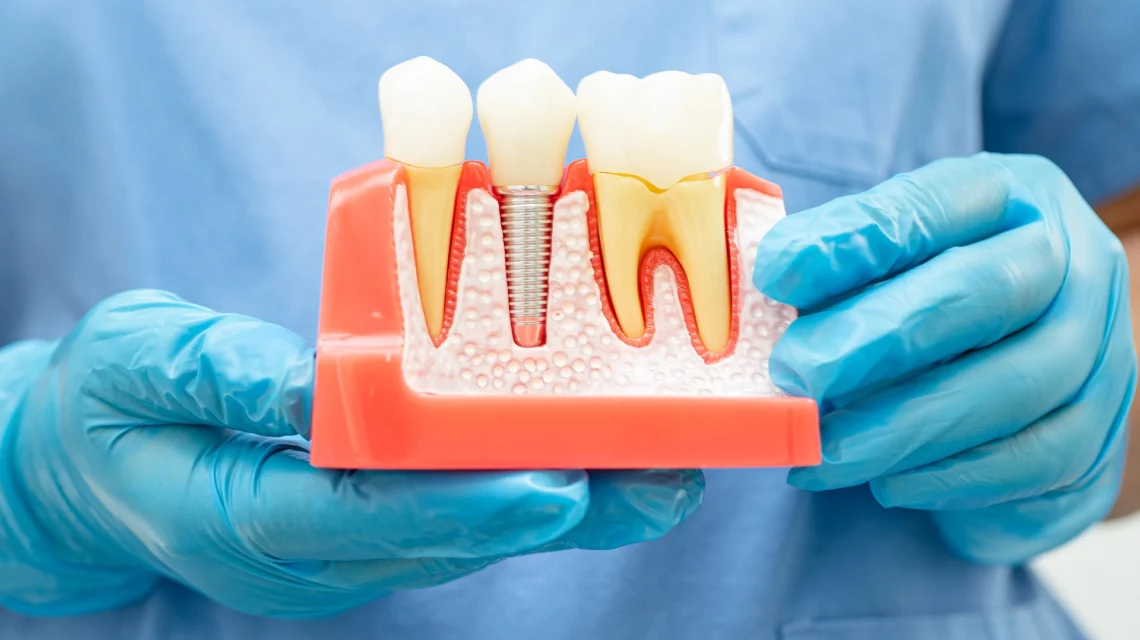If you have a gapped-tooth smile from missing teeth, and find it difficult to speak, eat, smile, dental implants are likely on your radar as a solution. The thing is, a quick search online and you’ll find forums touting all the reasons not to get dental implants, which can be confusing if you’re not clear on the truth about dental implants. So, to help you wade through the conflicting information, we’re going to separate the myths from reality, and outline when exactly dental implants are not the best fit.
6 Dental Implant Myths Separating You From a Full Smile
If you’ve come across any of the myths below that are being parroted as reasons not to get dental implants, it’s important to understand why it’s a myth and separate it from the truth.
1. Myth: Dental Implants Are Not For The Young.
This misconception is likely born out of the belief that younger individuals in their 20s or 30s may not require advanced dental solutions.
Truth: Dental implants are safe for adults of all ages, provided that the individual is in good health and possesses enough bone density in the jaw for the jawbone to fuse around the implant correctly. Age is not a determining factor here, and no one should be embarrassed about needing dental implants.
2. Myth: Implant Procedures Are Painful & Invasive.
The thought of any surgical procedure can evoke anxiety and fear - this is normal.
Truth:The truth about dental implants is that getting them can be uncomfortable, with post-treatment pain being mild and short-lived. In the days following surgery you will experience soreness and swelling, but cold compresses and OTC anti-inflammatory pain meds can manage it. Beyond this, all patients receive anesthesia to numb the area prior to surgery, and oral sedation options are available to help ease anxious patients.
3. Myth: Dental Implants Look Unnatural.
This reason not to get dental implants stems from instances of poorly executed and cheap dental implants from inexperienced providers.
Truth: Dental implants have the ability to mimic the strength, structure, and appearance of natural teeth. Because they fuse into the jawbone, they can be customized to match the shade, shape, and type of the natural tooth that’s missing. The anchor creates a strong bite, reduces risk of facial collapse, and allows you to eat, speak, and smile without worrying about slippage like you would with dentures.
4. Myth: Implants Require A High Maintenance Routine.
Most prosthetic devices require special care and maintenance, so it makes sense that this thought may carry over to dental implants.
Truth: The truth about dental implants is that they require minimal maintenance once the jawbone is healed and the implant has fused. The implant’s secure position prevents it from moving or loosening over time, and as long as you keep up with regular brushing, flossing, and dental checkups, you should have zero problems.
5. Myth: They Are Prone to Failure/Are Dangerous.
This reason not to get dental implants likely comes from the few isolated cases of implant failure. An implant failing is rare, and often occurs in patients who were not suitable candidates to begin with.
Truth: Dental implants are safe and have a high success rate of up to 98% when the procedure is performed by a qualified professional. Nowadays, there is extensive screening and testing done to ensure that candidates can properly heal and support a life-long dental implant. By following post- treatment care instructions carefully, there’s no reason why your dental implant cannot last a lifetime.
6. Myth: Dental Implants Are Expensive.
If you only look at the initial cost of dental implants and not weigh it against the long-term benefits and durability, it can be hard to see what makes them a worthwhile investment.
Truth:The truth about dental implants is that while the upfront cost can seem high, they are a cost-effective, permanent solution in the long run, as they have zero-low maintenance costs and are cheaper than other cosmetic options. Plus, they maintain the structural integrity of the jaw, which can help prevent serious consequences and future costs that come with missing teeth like facial sagging, and bone loss.
When Are Dental Implants Not The Best Fit?
The true reasons not to get dental implants are if you have unhealthy gums that can make the implantation process very difficult, or if you don’t have adequate jawbone support for the implant to be successful. Other than this, if you have preexisting medical disorders that impact healing (heavy smoker, diabetes, bone disease), or are in active cancer treatment, then dental implants may not be the best fit.
If you have questions surrounding candidacy, the myths, or want to learn about the pros and cons of dental implants, contact our team here at Family, Implant and Cosmetic Dentistry by calling us at (813) 684-7888 or by writing to us using our contact page here.




